Keresés: %s
Keresés: %s
HOURS OF OPERATION ON THE HUNGARIAN NATIONAL DAY OF MARCH 15
We would like to kindly inform our Clients that the Embassy will be closed on the March 15 Hungarian National Day.
Due to Good Friday and Easter Monday celebrations the Embassy of Hungary will be CLOSED on 2 April and 5 April!
We wish You a Happy Easter!

ON APRIL 9, 2021 - On the occasion of the Constitution Day of the Republic of Kosovo - the embassy will be CLOSED!
ON APRIL 9, 2021 - On the occasion of the Constitution Day of the Republic of Kosovo - the embassy will be CLOSED!

WELCOME to the University of Pécs!
WELCOME to the University of Pécs!
The University of Pécs represents classical values while successfully adapting to the present and using diverse methods of teaching. Well-known and recognized professors, well equipped classrooms and dormitories enable students to get the best out of their education abroad. As a part of the European higher education system, UP operates in the terms of the Bologna process offering the three-tier system consisting of bachelor level programs (BA, BSc) which last 6-8 semesters, master level programs (MA, MSc) with a duration of 2-4 semesters and doctoral level programs (PhD, DLA). Additionally, the University offers one-tier, undivided, long-term Master’s degree programs (5-6 years) in the domain of medicine, law and engineering. Furthermore, interested students have the opportunity to experience short programs, such as preparatory courses, summer universities, and partial trainings.
As a part of the European Credit Transfer System (ECTS), credits and degrees earned in Hungary are transferable to other European institutions. This means the education gained at the University of Pécs is recognised all over the European Union.
Funding and Scholarships
Self-financed international students, registered for a degree program, pay a tuition fee to the University of Pécs. The amount depends on the particular study program and level.
Furthermore, the application fee and registration fee (if there is one) depend on the study program. These two fees are non-refundable. Once transferred and received, the admission boards start the evaluation of the applicant’s documents.
Stipendium Hungaricum Scholarship
International students have the opportunity to apply for the Stipendium
Hungaricum Scholarship Program funded by the Hungarian Government. The full-funded scholarship covers the tuition fee, dormitory placement or a monthly contribution to accommodation costs and living expenses and health care services. Residents of countries that have valid/effective bilateral educational work plan agreement signed with Hungary are considered as eligible applicants. More on: stipendiumhungaricum.hu
Erasmus+ Program
One of the most well-known and successful programs of the European Commission which consists of two main academic unities: foreign study visits and internships. The University of Pécs is one of the partner universities and provides opportunities for its self-financed international students to join the European Exchange Program and go to study at another European institution while receiving scholarships from the EU.
More information: https://international.pte.hu/univeristy/brochures
https://international.pte.hu/videos
Please note that on Pentecost Monday, May 24, the Embassy will be CLOSED.
Please note that on Pentecost Monday, May 24, the Embassy will be CLOSED.

Meet Miranda Imeri from Kosovo, a former student of MATE
Are you interested in studying in Hungary for a shorter period? Are you a student of the Central European region? We introduce you to the CEEPUS mobility programme and the stories of former international participants with an exclusive interview!
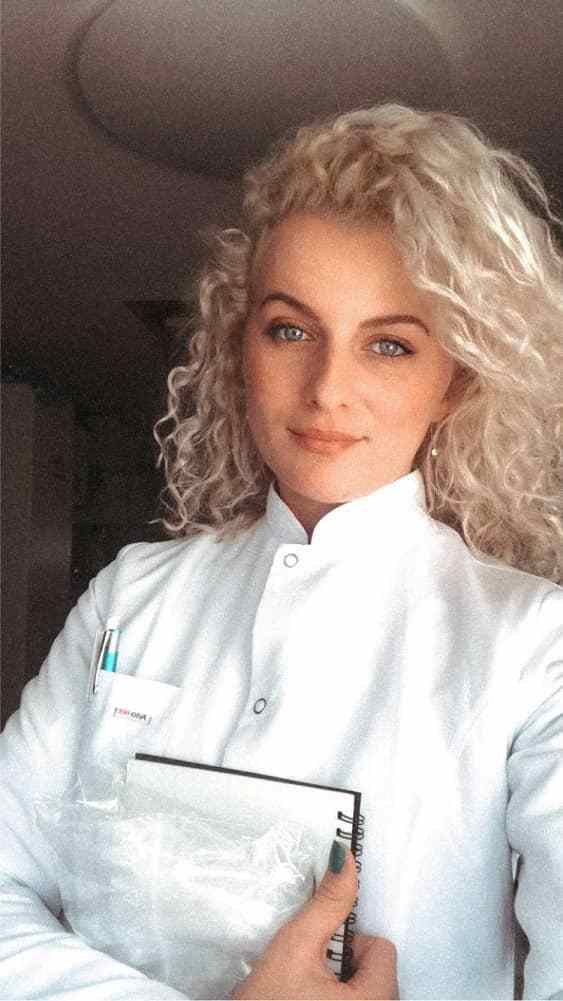
Tell us a bit about yourself: who are you; where are you from?
I am Miranda Imeri, I came from Kosovo. I am the author of the book ‘’Himni i së bukurës’’ (The Anthem of Beauty). I am the founder of the organization ‘’Kosovo Wildlife’’ for wild animals and environmental protection and management.
What is your academic background? What is your field of study and what made you interested in that field?
I earned my bachelor’s degree from the University of Prishtina ‘’Hasan Prishtina’’ Faculty of Agriculture and Veterinary, Business Management in Animal Science. After being awarded a CEEPUS Scholarship, I became a student at Szent István University in Gödöllő (today the Hungarian University of Agriculture and Life Sciences), Hungary, at the Faculty of Agricultural and Environmental Sciences, Wildlife Conservation Management. At the moment I am at the end of my post-graduation studies on Wildlife Management Engineering at the Hungarian University of Agriculture and Life Sciences, where I will start my studies at the Doctoral School of Animal Science.
What made you challenge yourself on the international scene?
 It’s a cliché, but studying abroad does broaden your horizons. Being in a foreign country and seeing how other cultures approach life makes you challenge your assumptions.
It’s a cliché, but studying abroad does broaden your horizons. Being in a foreign country and seeing how other cultures approach life makes you challenge your assumptions.
It makes you see things from another point of view, which turns you into a more rounded and more open-minded person. If you study abroad in a country where they don’t speak your native language, you will have an excellent opportunity to learn theirs. (Hungarian language) If you already know the basics of the language, this is your opportunity to improve your fluency. Moving abroad for studying forces you to be independent and not rely on family members for support. You should figure out how everything works in your host country. This allows you to confront any social anxieties you may have and finally become a more confident person. Moreover, you can create social networks around the world. Even writing in your CV you studied abroad tells employers that you are a well-travelled person who is open to different cultures and different points of view.
Where did you hear about the CEEPUS scholarship opportunity and what made you choose it?
After not being nominated for a Stipendium Hungaricum scholarship, I was seeking another opportunity to be an international student in Hungary, while I was prepared mentally to be part of the international program abroad and I was highly motivated to learn the Hungarian language and culture. Then I was in contact with the Embassy of Hungary in Prishtina, and they welcomed me and informed me about the programme, another support was by the CEEPUS coordinator Dr Blerta Mehmedi at the Faculty of Agriculture and Veterinary in Prishtina. The opportunity to apply twice a year made me choose it to not lose the academic time for my career path. I had the honour of being the first student from the home faculty to be awarded by CEEPUS Scholarship in Hungary.
You were a student of Szent István University (today the Hungarian University of Agriculture and Life Sciences) - what made you interested in these universities?
Based on my research, Szent István University (today the Hungarian University of Agriculture and Life Sciences) gave me the impression of being more than an education. The higher education qualification of the professors there raised my interest in being part of the university. My expectations for obtaining better career prospects resulted in being highly ranked at the academic level.
What were your first impressions of the university? What did you like the most; what was your favourite subject, etc.?
 The warm welcome as an international student at the Hungarian University of Agriculture and Life Sciences made me feel at home.
The warm welcome as an international student at the Hungarian University of Agriculture and Life Sciences made me feel at home.
My journey wouldn’t be successful without the encouragement and support of my coordinator Dr Zsuzsanna Tarr, and other international coordinators at the university, their office doors were open to help international students. I would like to mention that the professor of the Faculty of Agricultural and Environmental Sciences, the Department of Animal Sciences, and the Wildlife Institution, where I had the honour to take lessons, were reflating a respectful lovely feeling toward all the international students with the potential of making us feel like home and, they didn’t hesitate to suggest, recommend and support us for any solution for the possible challenges in a new country for us. The most important for me as a student from Kosovo, a country where we don’t have the opportunity to study wildlife conservation, unfortunately yet. It was a great opportunity to research, study and graduate in this field, to create, work, and bring new knowledge to my country about this field of study, to preserve wildlife. We're ensuring that future generations can enjoy our natural world and the incredible species. In order to help to protect wildlife, we need to understand how species interact within their ecosystems, and how they're affected by environmental and human influences.
What are your impressions of Hungary? Have you had the chance to visit different cities, regions? What are your experiences with Hungarian people like?
In the beginning of my studies in Hungary, a country of many inventors, made me feel pleased when I first met with Hungarian students. My first time seeing Budapest was with my roommate from China. The architecture of Hungary through history reflected fabulous beauty, several blocks with a different style. Hungary has one of the richest folk traditions in Europe. The thermal spas are very impressive and the bath culture dates back to the time of the Romans in the 2nd century. The open-air festivals in July and August are the country’s most important and showcases every branch of the performing arts. Hungary took a special place in my heart, and the classical music of Hungary feeds my soul. Hungarian people are lovely and it was so special to me seeing how they wear their traditional clothes, which are very detailed and related to nature, flowers, and history. When I saw these traditional costumes on people walking on the streets, I felt I was in a living history book and they are the characters of the old kingdom. I feel like Hungary is my second home.
How did the pandemic affect your mobility? What were the challenges to overcome?
Unfortunately, the pandemic affected most of the important events, like the international dinner at the campus, the University Ball. During these events,
 I had a chance to meet new students from all around the world and get to know their culture, including their traditional dance, wearing, music, art, games.
I had a chance to meet new students from all around the world and get to know their culture, including their traditional dance, wearing, music, art, games.
Isn’t it great to meet people from Nepal, Fiji, Brazil, Ecuador, Russia, Japan, Malaysia, and all of them in the heart of Europe, Budapest? Nevertheless, when the pandemic began, we were all in quarantine in the dormitory at the campus, trying to encourage each other and staying motivated to keep working and studying for our goals.
And last: all in all, what did the CEEPUS mobility opportunity give you?
 CEEPUS mobility gave me the greatest opportunity in my life, starting with unboxing myself from cultural prejudices. Living at the International Campus, which we called ‘’Global Village’’ was the best experience to learn about cultural diversity.
CEEPUS mobility gave me the greatest opportunity in my life, starting with unboxing myself from cultural prejudices. Living at the International Campus, which we called ‘’Global Village’’ was the best experience to learn about cultural diversity.
Moreover, I thankful for the network I have created and that I established the idea of the scientific project for Monitoring the Wildlife of Kosovo with the collaboration of two academic institutions. My contribution to the development of academic corporation between Kosovo and Hungary was highly appreciated by the Embassy of Hungary in Prishtina, Szent István University, the University of Prishtina ‘’Hasan Prishtina’’ and the Ministry of Environment, Spatial Planning, and Infrastructure of the Republic of Kosovo and this motivates me to become a doctoral student in Hungary.
Pianist Gergely Kovács gave a very successful concert in Pristina
On June 10, 2021 - thanks to the collaboration between CHOPIN PIANO FEST and Cziffra100 Memorial Year in Pristina and our Embassy - pianist Gergely Kovács gave a very successful concert in Pristina.


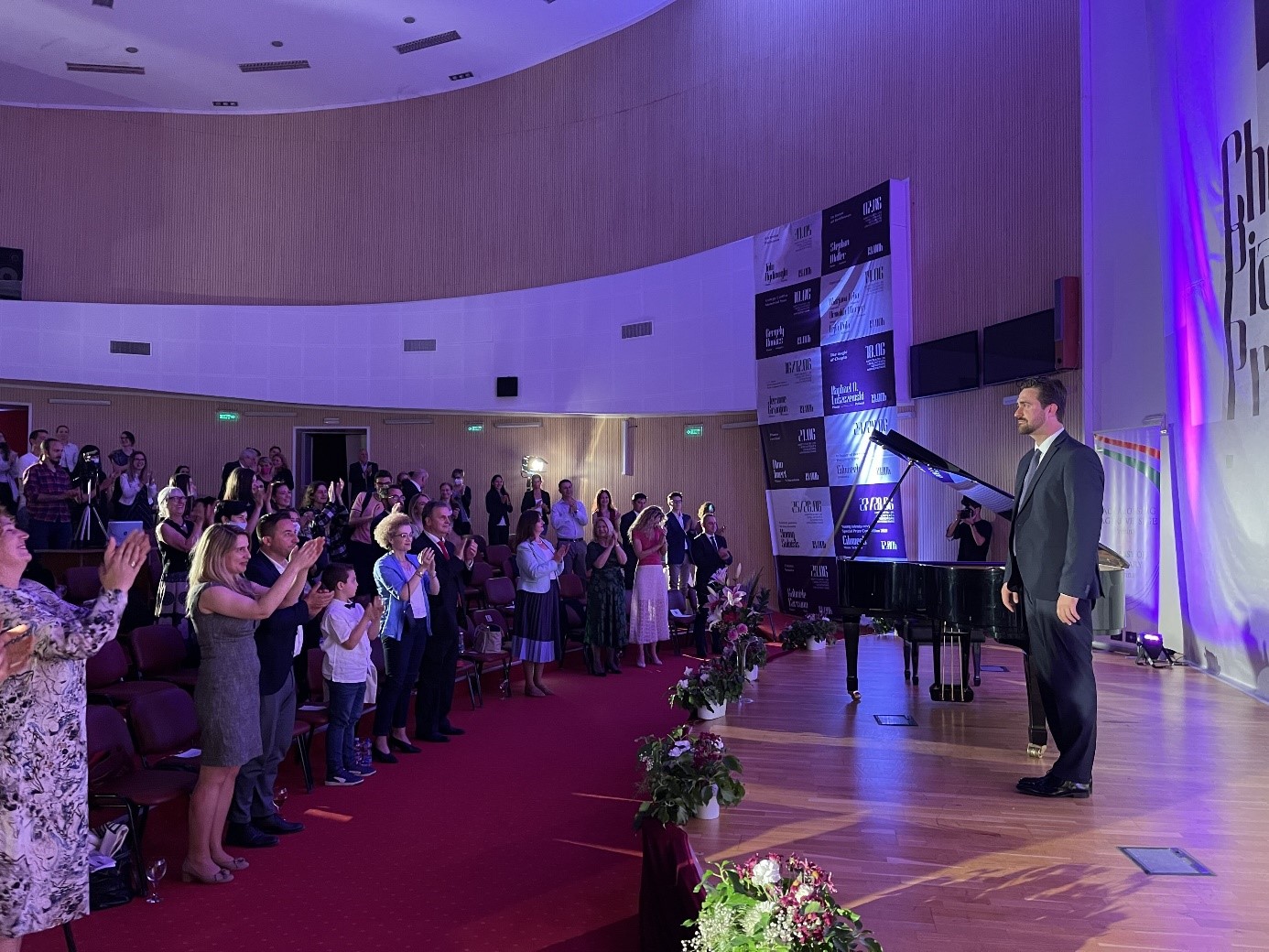
Hungary supported the renovation of the Kamenica Youth Center with 19 million HUF
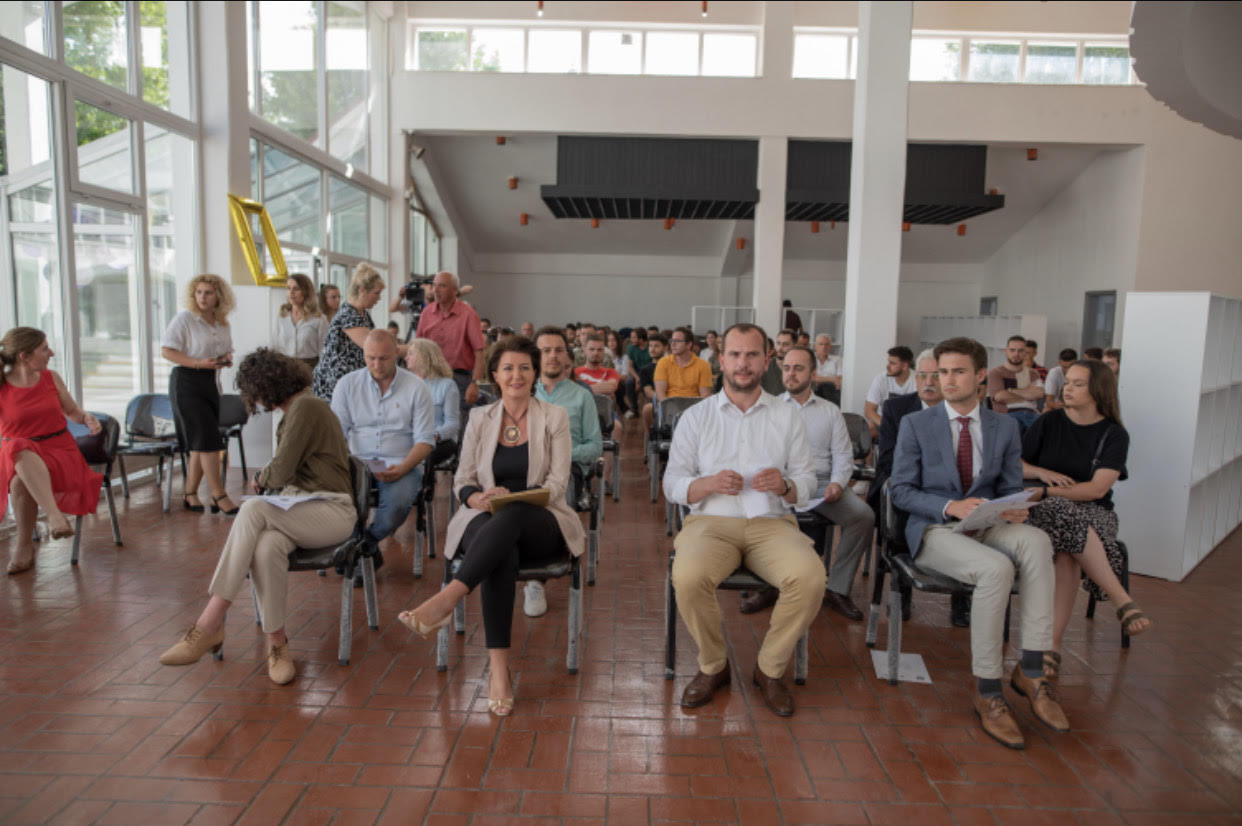
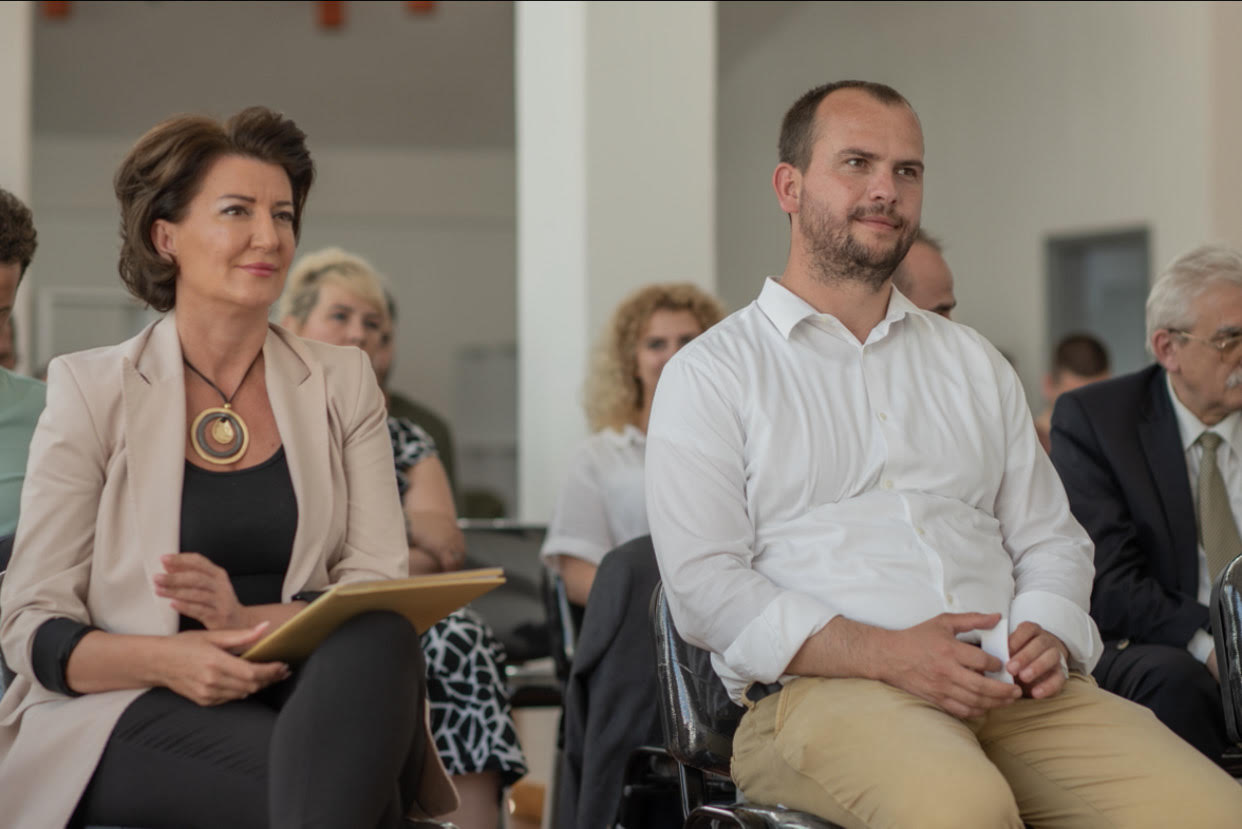
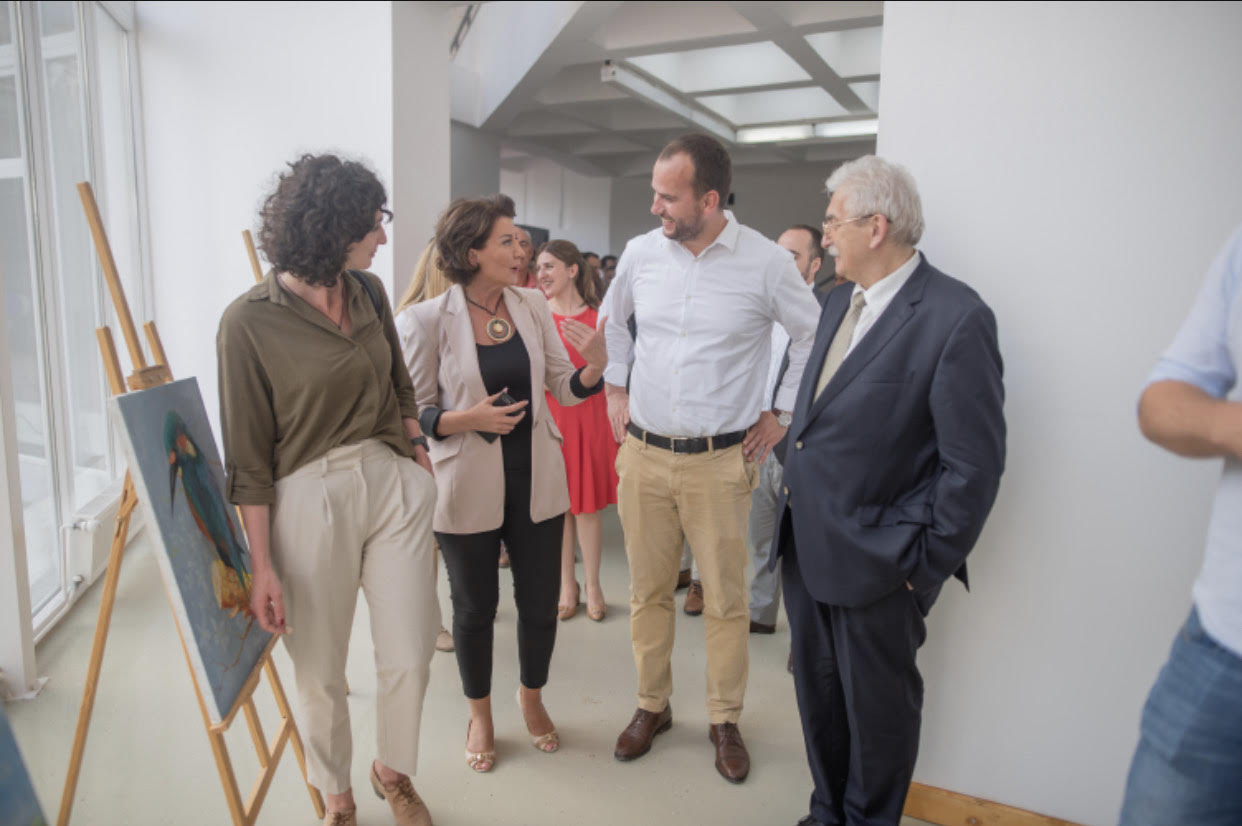
Information for Stipendium Hungaricum Scholarship holders!
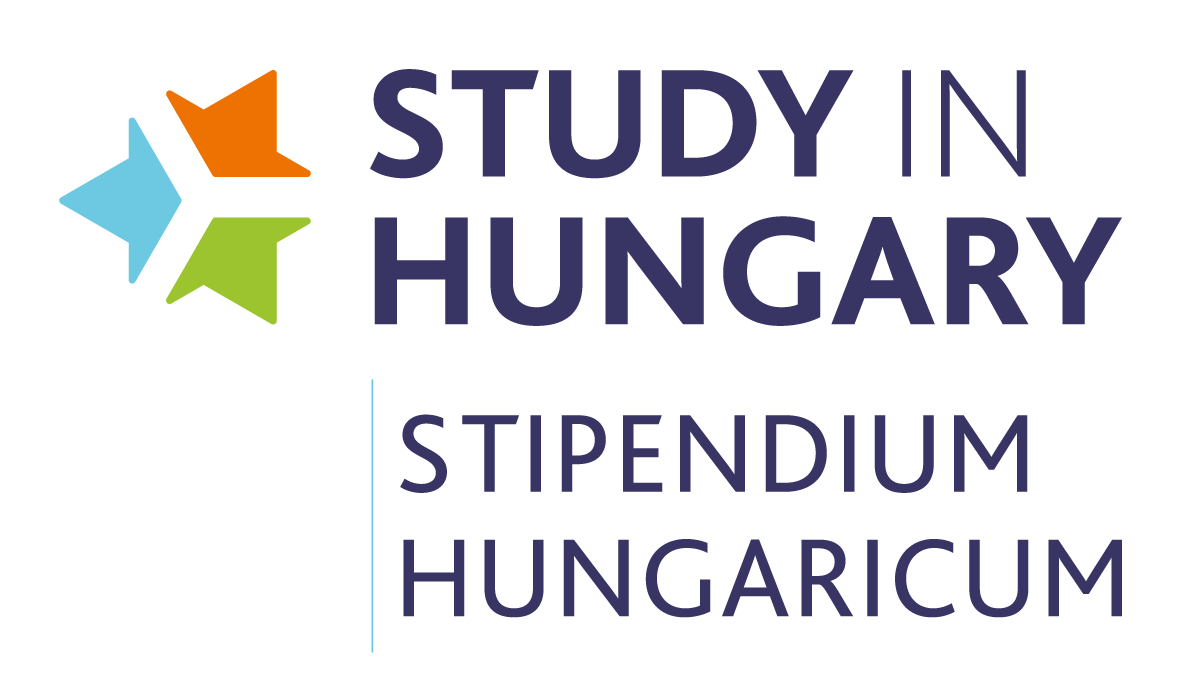
Information for Stipendium Hungaricum Scholarship holders!
To travel to Hungary you will need to hold a valid residence permit, which you can apply at the Hungarian Embassy in Pristina. To book appointment, please go online:
https://konzinfobooking.mfa.gov.hu/home
For information about the procedure click here.
Minister of Defense Tibor Benkő handed over 3,100 Astra Zeneca vaccines to the KFOR Commander to ensure adequate protection for local civilian personnel serving in NATO forces in Kosovo
Minister of Defense Tibor Benkő visited Pristina, and met with the Commander of KFOR, Major General Franco Federici. The minister handed over 3,100 Astra Zeneca vaccines to the KFOR commander to ensure adequate protection for local civilian personnel serving in NATO forces in Kosovo. General Federici thanked the offer and emphasized the importance of the Hungarian donation, because, as he said, the essential condition for the operation of the camp was the adequate protection of local staff against the epidemic.

Minister of Defense Tibor Benkő was received on a courtesy visit by Armend Mehaj , Minister of Defense of the Kosovo Government
Minister of Defense Tibor Benkő was received on a courtesy visit by Armend Mehaj, Minister of Defense of the Kosovo Government, with whom he reviewed the possibilities for future bilateral cooperation. The Hungarian Minister invited his Kosovo partner to visit Hungary.

Due to the celebration of Kurban Bajram the Embassy will be closed on 20 July!
Due to the celebration of Kurban Bajram the Embassy will be closed on 20 July!

With the help of the Embassy, on August 12, 2021, on International Youth Day in Pristina and Prizren, a teqball table was donated to the municipalities of the two cities!
István Iglói-Nagy, Head of the Sports Diplomacy Department of the Ministry of Foreign Affairs and Trade of Hungary, and Mr. Marius Vizer, Secretary General of the International Teqball Federation, donated a teqball table to the municipalities of the two cities on 12 August 2021, International Youth Day in Pristina and Prizren. Prior to the handover in Pristina, Daulina Osmani Deputy Minister of Culture, Youth and Sports received István Iglói-Nagy, Head of Department, and Ambassador József Bencze.
.jpg)
.jpg)
.jpg)
.jpg)
.jpg)
‼️The Embassy of Hungary will be CLOSED on the 20th of August due to celebrations of the Establishment of the state of Hungary.
‼️The Embassy of Hungary will be CLOSED on the 20th of August due to celebrations of the Establishment of the state of Hungary.
.jpg)
Apply for Visegrad/Visegrad+/Strategic Grants !
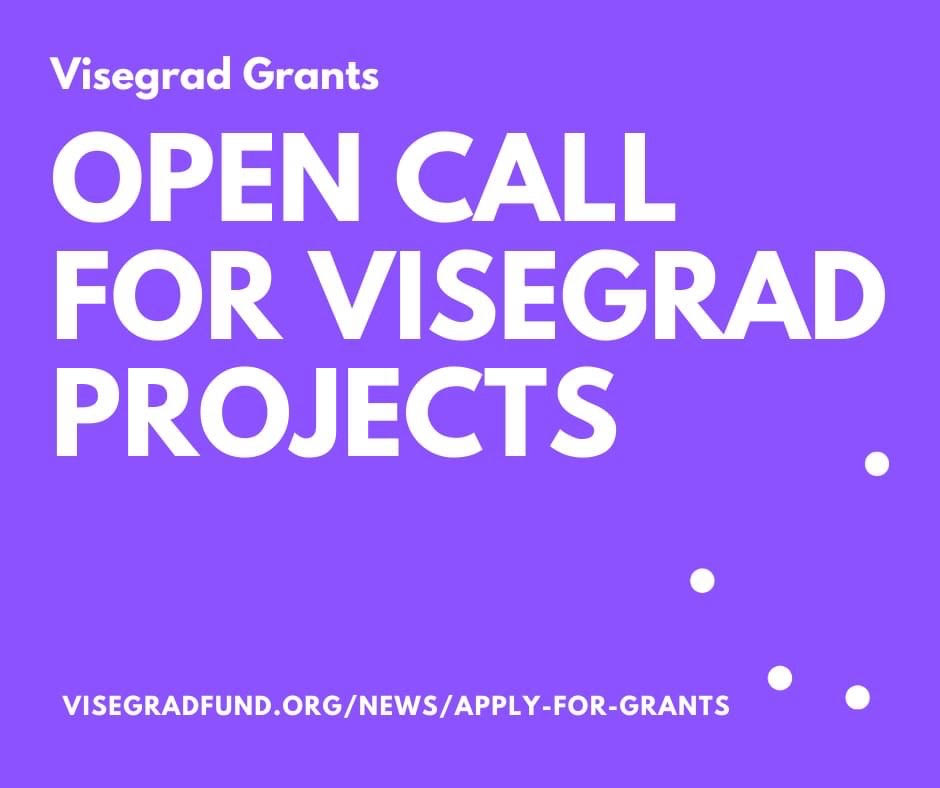
Major General Ferenc Kajári takes over as KFOR Commander
Major General Kajári took over the one-year command over NATO’s peacekeeping mission in the Republic of Kosovo (KFOR) from the Italian Franco Federici. It will be the first time that an officer from Hungary is at the head of KFOR.
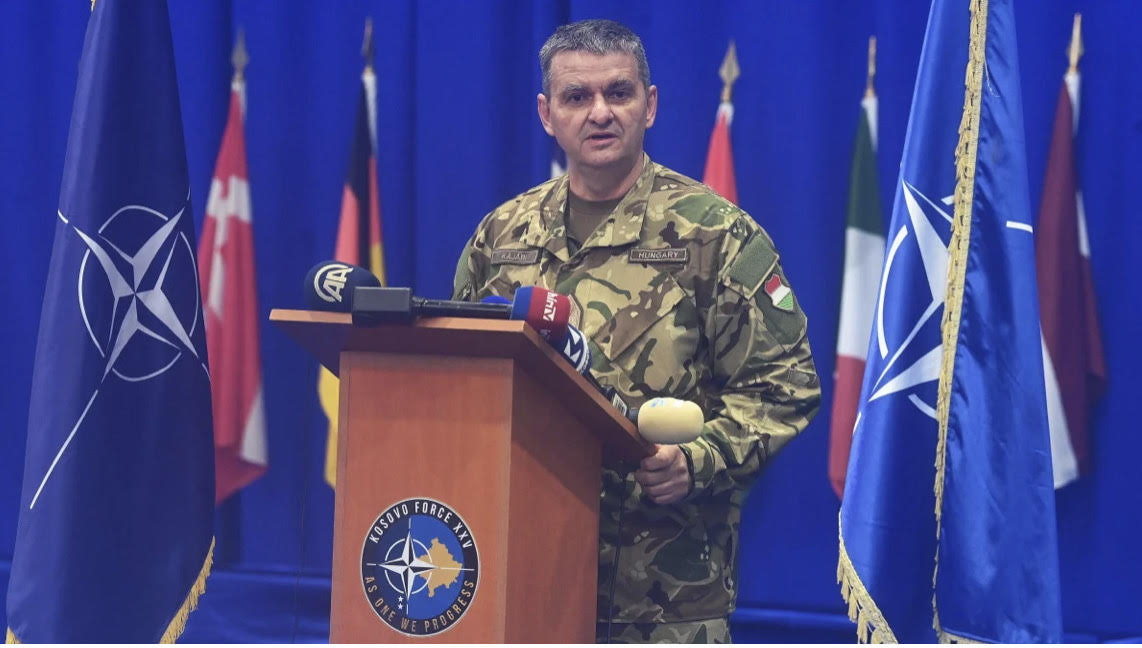
Fotó: MTI
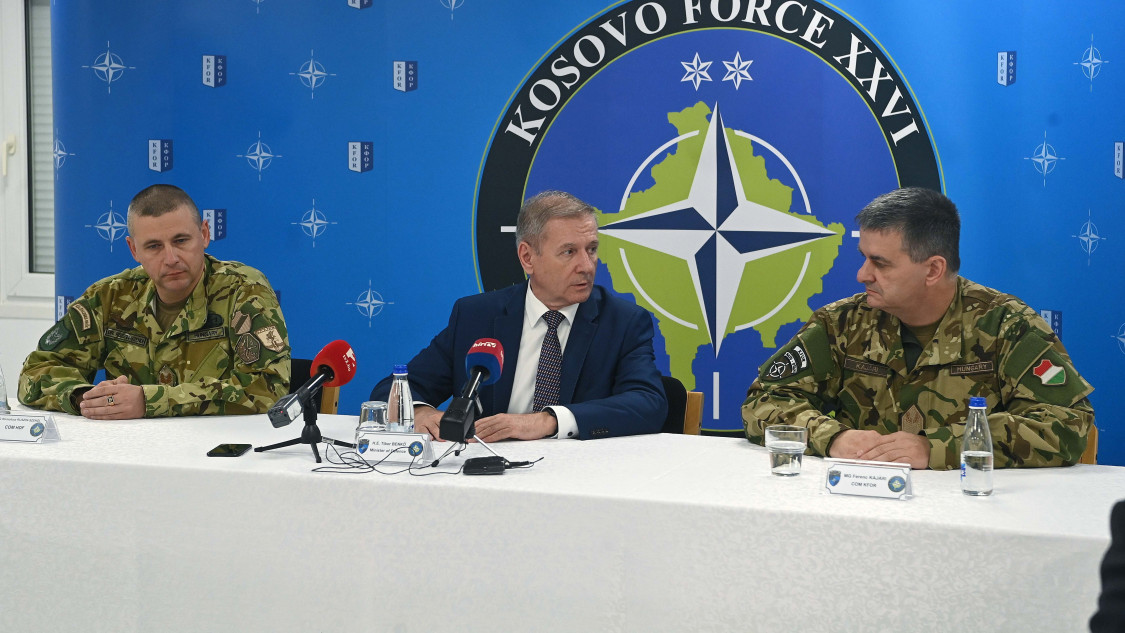
Fotó : MTI / Bruzák Noémi
We have commemorated our heroes resting in the Austro-Hungarian military cemetery in Peja
Together with the Austrian Embassy in Pristina and with the soldiers of the Hungarian, Austrian and Polish KFOR contingents, we have commemorated our heroes resting in the Austro-Hungarian military cemetery in Peja. A speech was given by Major General Ferenc Kajári, Commander of KFOR.
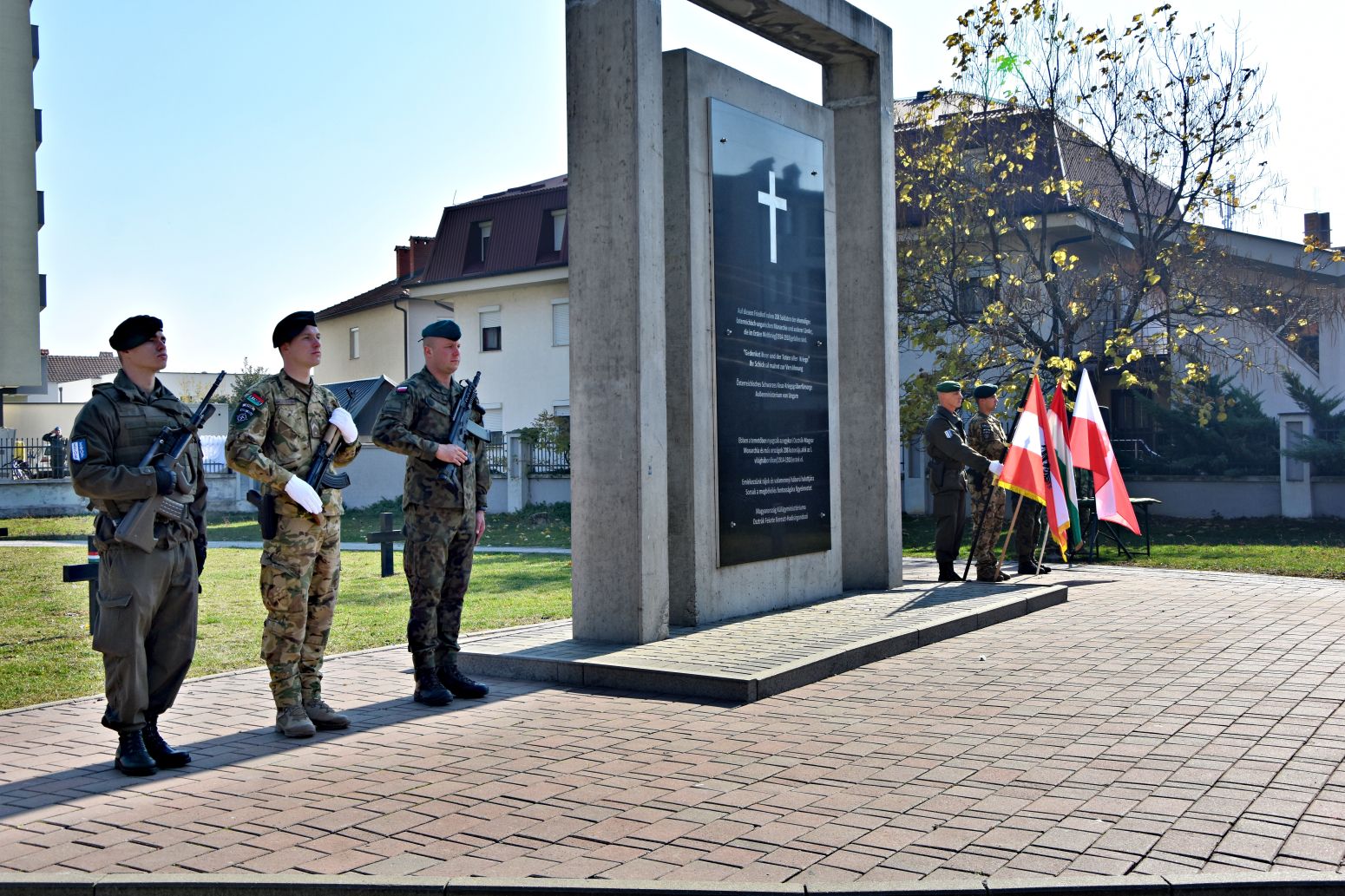
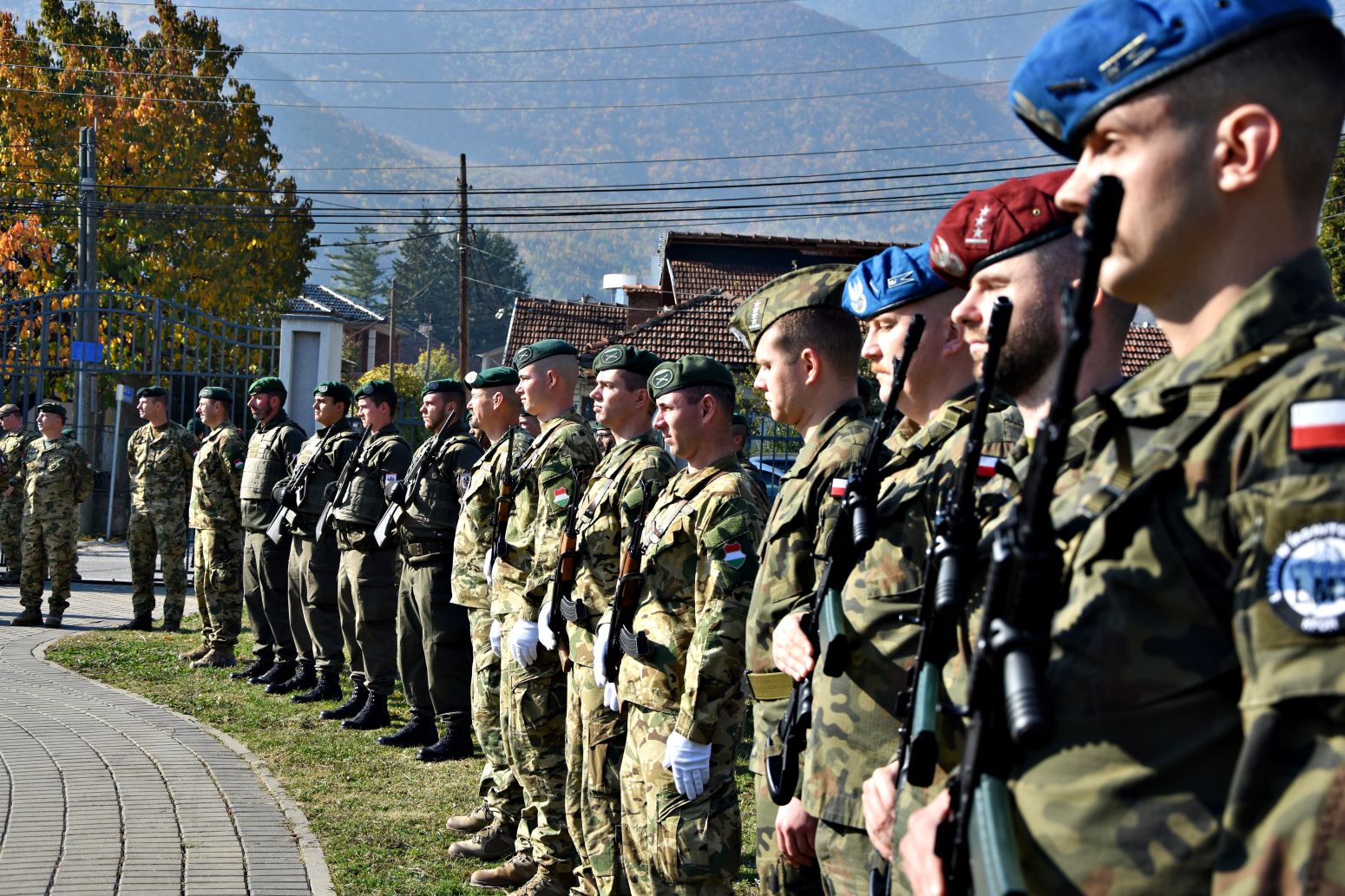
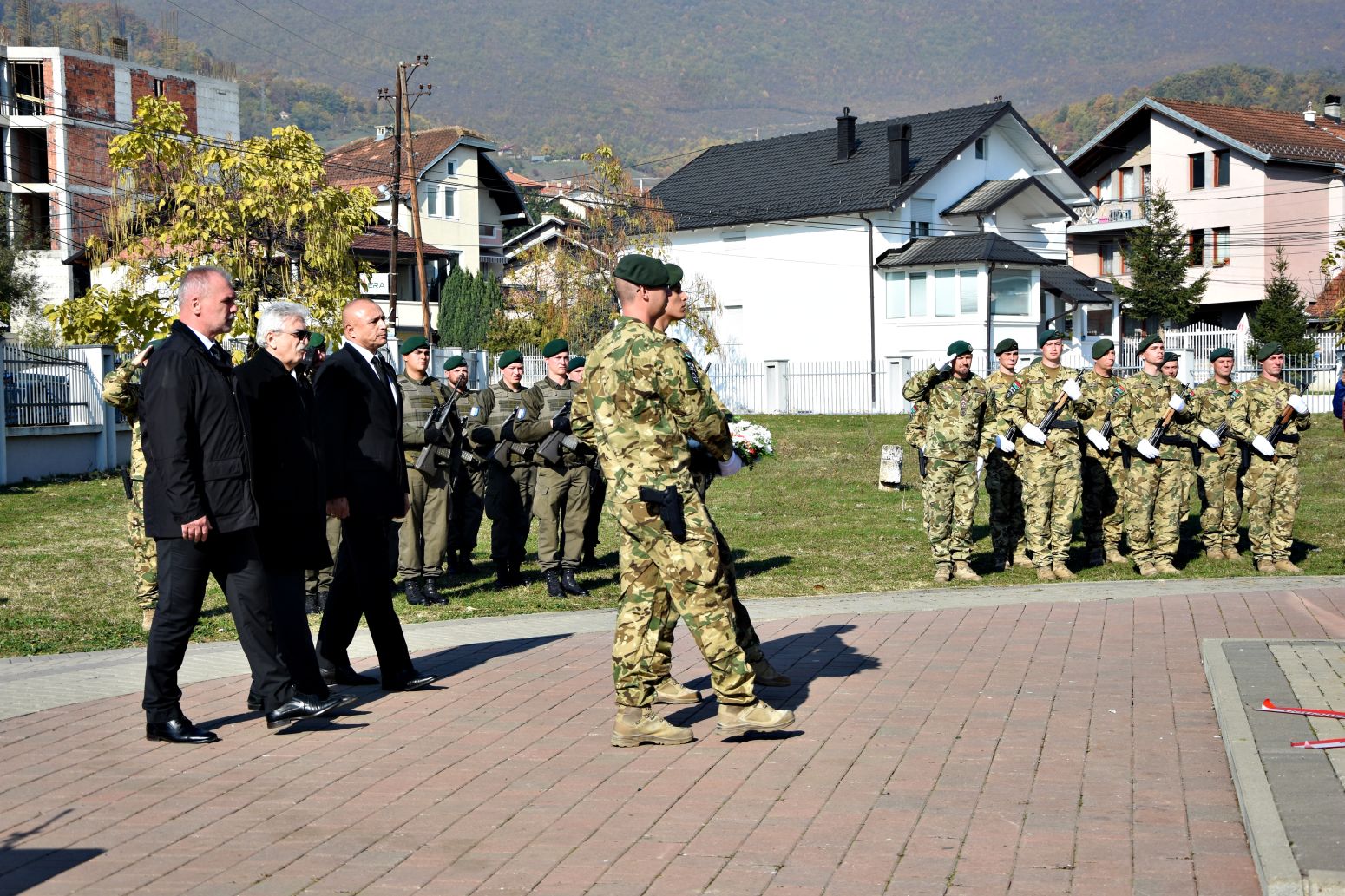
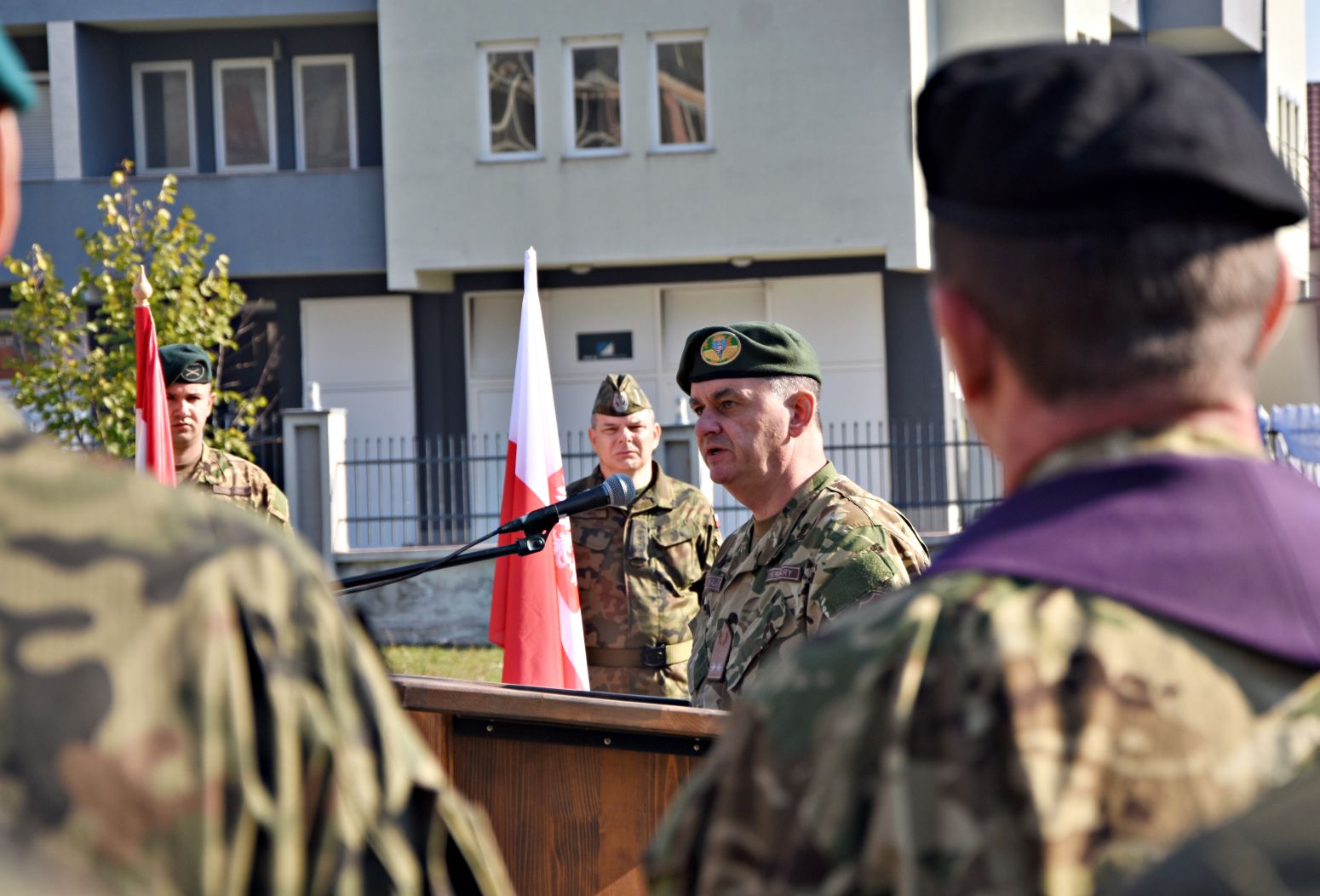
Join our conference ONLINE titled "Europe that the young generation of Kosovo would like to see"
The Embassy of Hungary in Pristina and the Rochester Institute of Technology Kosovo will organize a conference on
Europe that the young generation of Kosovo would like to see
Young people representing higher education institutions of Kosovo will have the chance to engage in a panel discussion and share their views and aspirations for the Western Balkans region and how youth can have a significant impact on the future of Europe. The open discussion and exchange of ideas during this conference will be an opportunity to dissect the vision of young Kosovars and provide recommendations to the European Union on the topic of YOUTH in Europe.
Date: 30th November 2021
Time: 11:30am – 13:30 pm.
Live stream URL: https://www.youtube.com/c/RITAUKkosovo
Join us on-line and leave your opinion in the comment section!!!
For more information on the Conference on the Future of Europe please visit https://futureu.europa.eu/?locale=en

2nd Hungarian IT Symposium in Kosovo
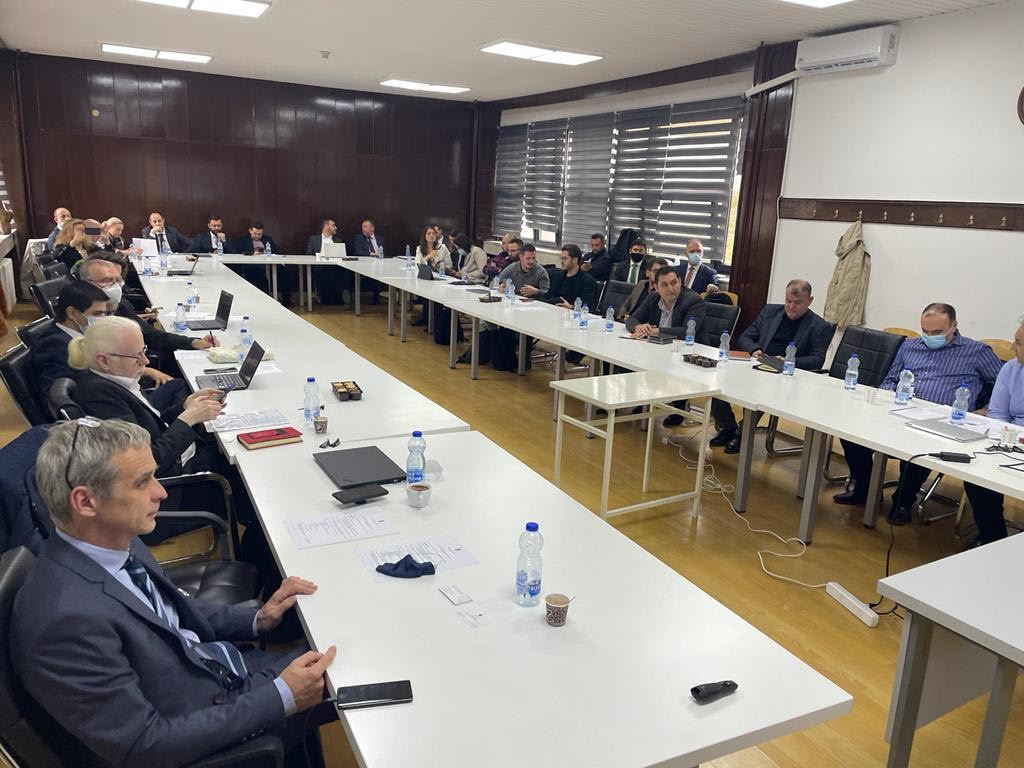
Conference on the Future of Europe: Europe that young generation of Kosovo would like to see
Conference on the Future of Europe: Europe that young generation of Kosovo would like to see
Pristina, 30 november 2021 – In a conference organized by the Hungarian Embassy in Pristina in collaboration with Rochester Institute of Technology in Kosovo (RITK) hosted at the RITK campus in Germia, 55 students from Kosovo’s higher education had the chance to share their visions of the Europe they would like to see.
The students had the chance to hear from the European Union Commissioner for Neighborhood and Enlargement, Olivér Várhelyi through a video message. Varhelyi called the youth of Kosovo as the most valuable asset and told them that their voice will have a great impact on addressing economic development and making state institutions responsible to the needs of citizens.
Moreover, the students took part in a panel discussion moderated by the Ambassador and EU Integration Advisor to the Kosovo Government, Mr. Laszlo Domjan, whilst the panel consisted of Ambassador Tomáš Szunyog, Head of EU Office in Kosovo, Deputy Minister of Education of Kosovo Mr. Dukagjin Pupovci, Executive Director at Pristina Institute for Political Studies (PiPS) Ms. Leonora Kryeziu and Young European Ambassador for Kosovo, Mr. Eris Cunaku.
Ambassador Tomáš Szunyog expressed the EU’s readiness to support and engage with civil society in Kosovo. He also expressed the importance of youth initiative in Kosovo and how the youth can aid in tackling current issues such as climate change, unemployment, corruption, organized crime etc.
Deputy Minister of Education Dukagjin Pupovci stated that despite travel restrictions, Kosovo youth manage to go work and study in the EU which alleviates the feeling of exclusion from the region. He also added that one issue that the youth face is the skill gap in Kosovo’s labour market mainly coming from the education sector, therefore he strongly encouraged the youth to share their views before the government and EU officials present at the event.
PiPS executive director Leonora Kryeziu added that she has worked with civil society for almost 20 years now together with young people in Kosovo and there are many unresolved issues that the youth in Kosovo face. From the Kosovo-Serbia obstacle to visa liberalization, she stressed that the vision of Kosovo’s youth is no different from the rest of Europe’s youth vision, however the opportunities to achieve that vision are different.
Young European Ambassador for Kosovo Eris Çunaku added that sharing ideas and viewpoints is one of the ways for Europe’s youth to connect with one another. He encouraged young people to take more initiatives and be louder on issues that they really care about.
The audience shared concerns over freedom of travel in Europe, lack of opportunities to travel and study abroad, education system reforms in Kosovo, foreign direct investments in Kosovo, promotion of Kosovo abroad, supporting youth activities, scholarship and study programs abroad etc. The students made sure to reiterate that with more opportunities provided in their home country, the desire to travel to Europe would be to study, meet new people and share new experiences with their European peers.
Through this very fruitful discussion, the students have identified some recommendations to the EU on the Europe that the young generation of Kosovo would like to see.
Recommendations:
- An integrated Europe with freedom of movement – more opportunities to study and work in Europe.
- EU to continue supporting education programs abroad for Kosovar students.
- Programs to promote Kosovo abroad.
- Work with Kosovo government on attracting more foreign direct investment in the region.
- Support the Kosovo government on education reforms and tackling the issue of skills gap in the labour market.
- Europe supporting human rights on a larger scale.
- Europe working with the Kosovo government to support youth programs in art, music, sport and education further.

